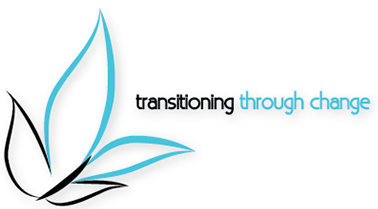What Does a Therapist Do?

Mental health and overall health go hand in hand. Nurturing your mental health by processing emotions and developing new solutions can improve your wellbeing and help you move forward after challenges.
Therapy is an essential aspect of taking care of your mental health. But what exactly does a therapist do–and how can they help you?
There are many approaches to individual therapy. People may imagine what happens in therapy as they see on TV or in movies, where a therapist is often portrayed as an indifferent expert nodding off during sessions.
But real-life therapy is much different than what is portrayed in popular media. This guide will explore what happens during therapy and how therapists support their clients’ mental health and well-being. For more information about starting therapy, contact Transitioning Through Change to begin your journey.
What Does a Therapist Do?
Therapy can help you work through difficult emotions and face challenges with the tools to manage them. Common issues a therapist can help with include:
- Depression
- Anxiety
- Stress
- Relationship difficulties
- Grief
- Managing the symptoms of mental illness
Therapy may seem mysterious or intimidating to some–but it doesn’t need to be. Here are some of the things a therapist can do.
Hold space
Your therapist will provide a safe, supportive environment where you can feel comfortable talking about your experiences and emotions.
Listen
Your therapist will listen to you without judgment. They will reflect what they’re hearing, which allows you to gain a new perspective on your experiences.
Make connections
Therapists focus deeply on your thoughts, feelings, and behaviors and can call attention to patterns they notice. This can help you make sense of your experiences and take action to create a healthier future.
Explore
Therapists help clients identify and explore their choices, allowing people to identify options when they feel “stuck.”
A therapist does not always offer advice or tell people how to manage their challenges. Instead, they provide a safe place for people to work through emotions and experiences and help them to identify areas of strength.
Therapists may also provide effective tools to help people manage their emotions and make healthy behavioral changes. A therapist’s role is to empower people to live the most fulfilling life possible.
3 Things Therapists Don’t Do
Knowing what to expect when you begin your therapy journey is important. But it’s just as essential to know some of the things that therapists don’t do.
1. Therapists don’t judge
Your therapist is there to listen–not to judge. Therapists create a safe, nurturing environment so their clients feel comfortable sharing deeply personal emotions and experiences they can learn to process in new ways.
2. They don’t share information
Therapists take privacy and confidentiality very seriously. What you share in sessions is kept strictly confidential. The only exception to this rule is if a therapist believes a client may hurt themselves or others.
3. Therapists can’t magically solve problems
Therapists are not magicians who have all the answers to your problems. They are trained to support you as you discover healthy ways to live the life you choose and uncover hidden strengths. Therapy is a process that can take some time–but it is worth the investment.
Find a Therapist in Westminster
If you need the support of a therapist Westminster, reach out to Transitioning Through Change. Therapy can help you move forward into the healthier, more satisfying life you choose. Don’t wait another day for the support and care you deserve. Call today to get started.
